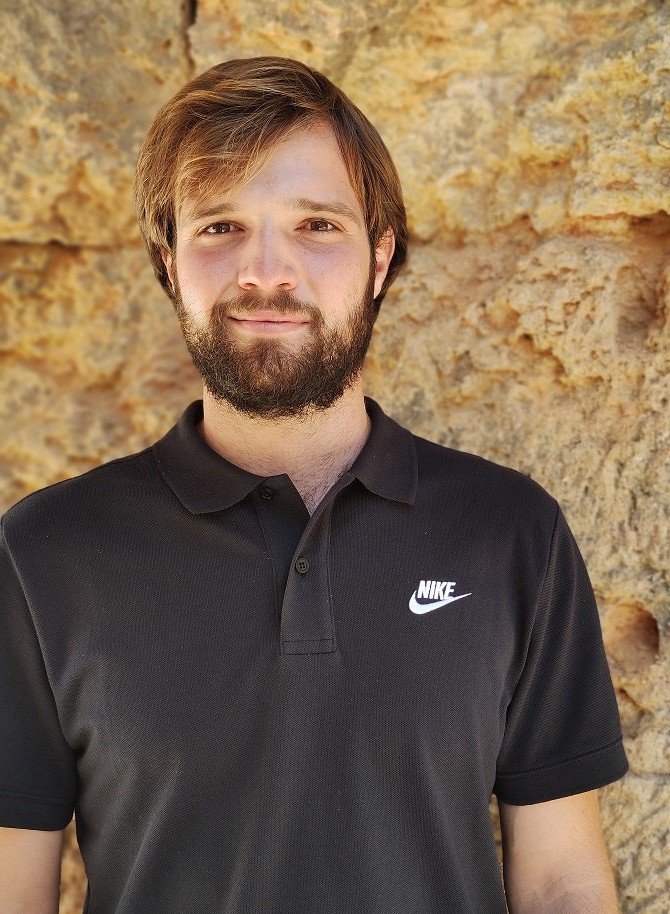Breu currículum
Ioannis Apostolou joined ICAC this June 2020. He has won a three-year doctoral scholarship (FI grant to contract new research staff, FI 2020) granted by the Catalan Government.
Apostolou will develop his project, “Advancing the development of automated intensive archaeological survey: application to case studies from Greece”, in the Landscape Archaeology (GIAP) research team, under the supervision of Dr Hèctor A. Orengo.
He obtained a Bachelor degree in Archaeology and Ancient History at the University of Thessaloniki (Greece) and he is specialized in pottery studies, and a Masters on Early Iron Age Greece at the University of Oxford, UK.
During his training in Oxford, Apostolou worked in the Lefkandi (Euboea, Greece) project directed by Prof. Irene Lemos, where Dr Alexandra Livarda also works, leading the archaeobotanical research. There, he got involved in many occasions in the ongoing archaeological works of the site and got in touch with GIAP projects and research themes.
In ICAC, his thesis project will be part of three ongoing projects:
TransMed: Transported Landscapes of Greek Mediterranean Colonisation (H2020-MSCA-IF-2018: 839650), led by Dr Hèctor A. Orengo and Dr Merkouris Georgiadis. Long Time, No See: Land Reclamation and the Cultural Record of Central-Western Plain of Thessaly, led by Dr Athanasia Krahtopouloum (Hellenic Ministry of Culture & Sports), Prof Santiago Riera (SERP-UB) and Dr Hèctor A. Orengo (ICAC). Drone-based Intelligent Archaeological Survey (DIASur), funded by the BBVA Foundation and directed by Dr Hèctor A. OrengoGIS technology and digital tools for the automatic survey will be a key topic in Apostolou’s research, to combine improvement of these new archaeological survey tools with the reconstruction of daily life in Iron Age Greece through the interpretation of pottery remains.
His fieldwork will be focused mainly on Grevena (a mountain environment) and Thessaly (a sedimentary plain), in line with the objectives of the three research projects mentioned above. The different geographical characteristics of these areas open different possibilities to apply automatic survey techniques and compare results. So, the project will not be only comparing technical approaches, but also material culture remains in the different areas, and under different conditions.
Watch out this space for updates on Yannis’ project!






